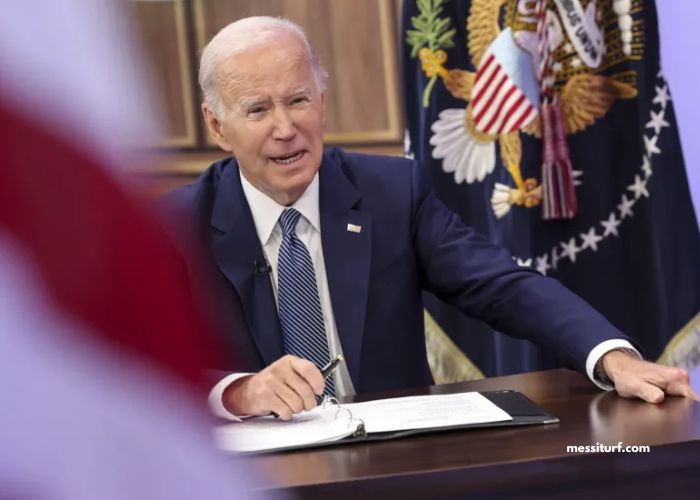Cryptocurrency futures have revolutionized how investors and traders approach the digital asset market. As one of the most dynamic and exciting financial instruments available, cryptocurrency trading allows you to speculate on the future price movements of cryptocurrencies, offering unique profit opportunities even during market downturns.
In this guide, you will learn what are futures crypto and the fundamental subtleties and features of crypto futures, presenting them in a clear and accessible manner. You will understand that navigating the complexities of this evolving market can be challenging, especially for beginners, and that’s where this guide comes in handy.
What are cryptocurrency futures?
Cryptocurrency futures are a type of financial derivative contract that allows traders and investors to speculate on the future price movements of cryptocurrencies. Unlike traditional spot trading, where you buy or sell the underlying asset (e.g., Bitcoin or Ethereum) and take ownership of it, futures trading enables you to agree to buy or sell the cryptocurrency at a predetermined price on a specified future date.
In a cryptocurrency futures contract, two parties are involved: the buyer (long position) and the seller (short position). The buyer agrees to purchase the cryptocurrency at the specified price on the contract’s expiration date, while the seller agrees to sell it at that price. The contract’s price is based on the current market price of the cryptocurrency and may be subject to fluctuations as the market evolves.
The primary purpose of cryptocurrency futures is to hedge against price volatility and to provide opportunities for traders to profit from both upward and downward price movements in the market. This means that even if the cryptocurrency’s price is expected to decrease, a trader can take a short position and benefit from the price decline.
One key feature of cryptocurrency futures trading is leverage. Exchanges typically offer power, allowing traders to control a more prominent position with less capital. While leverage can amplify potential gains, it also magnifies potential losses, making risk management a crucial aspect of futures trading.
It’s essential to understand that cryptocurrency futures trading involves higher complexity and risk than traditional spot trading. Traders should have a good understanding of the underlying cryptocurrency market, technical analysis, and risk management strategies to engage in futures trading successfully.
Characteristics of crypto futures
Cryptocurrency futures possess several distinct characteristics that set them apart from other financial instruments. Understanding these key features is essential for traders and investors seeking cryptocurrency futures trading. Here are some of the primary characteristics of crypto futures:
- Derivative Contracts. Traders do not own the actual cryptocurrencies but speculate on their future price movements.
- Fixed Expiration Date. Traders must settle their positions before the expiration date, either by closing or letting them expire.
- Leverage. Most cryptocurrency exchanges offer leverage, allowing traders to control a more prominent position with less capital.
- Long and Short Positions. Going extended means speculating on a price increase, while going short means speculating on a decrease.
- Margin Requirements. To open a futures position, traders must deposit a certain percentage of the contract’s value as a margin.
- Price Discovery. Futures markets contribute to price discovery by providing a platform for traders to express their views on the future price of cryptocurrencies.
- Marking to Market. Futures positions are marked to market regularly, which means their gains or losses are realized daily based on the contract’s price at the end of each trading day.
- Contract Size. Each cryptocurrency futures contract has a predetermined size, which specifies the amount of the underlying asset represented by one contract.
- Volatility and Risk. Traders must manage risk effectively through appropriate risk management strategies.
Cryptocurrency futures offer unique opportunities for traders to profit from the volatile digital asset market. However, due to their leveraged nature and inherent risk, individuals should approach futures trading cautiously and thoroughly understand the market before participating.
How do futures work on regulated exchanges?
Futures trading on regulated exchanges follows a standardized process to ensure transparency, fairness, and investor protection. Trading and navigating cryptocurrency futures on regulated exchanges provides traders with a well-monitored and secure environment. It also helps attract institutional investors and boosts overall market confidence. However, traders should still exercise caution, conduct thorough research, and understand the risks of futures trading before participating in any exchange, even if it’s regulated.
How do futures work on unregulated exchanges?
Futures trading on unregulated exchanges, also known as over-the-counter (OTC) markets, operates outside the oversight and regulations imposed by financial authorities. These decentralized exchanges do not have a central clearinghouse or standardized contract terms.
Due to the lack of regulatory oversight and standardized contract terms, getting started with trading cryptocurrency futures on unregulated exchanges carries a higher risk level than regulated exchanges. Traders should exercise extreme caution, carefully evaluate counterparties, and conduct comprehensive research before engaging in OTC futures trading.
Benefits of using crypto futures for trading
Understanding cryptocurrency futures and their features is essential. Here are some of the critical advantages:
- One of the most significant advantages of crypto futures is the availability of leverage. Traders can control a more prominent position with relatively little capital.
- Unlike spot trading, where you can only profit from a cryptocurrency’s price increase, futures trading allows you to take both long (buy) and short (sell) positions.
- Crypto futures effectively hedge against price volatility and manage risk in a portfolio.
- The futures market plays a vital role in price discovery for cryptocurrencies.
- Many cryptocurrency futures exchanges operate 24/7, providing continuous trading opportunities without downtime.
- Futures exchanges often offer a wide range of cryptocurrencies, exposing traders to various digital assets beyond just bitcoin futures and Ethereum.
- Major cryptocurrency exchanges can have substantial liquidity, allowing for efficient execution of trades with minimal price slippage.
- Lower trading costs can be attractive to active traders seeking to maximize their profitability.
While some traders may prefer unregulated exchanges for certain benefits, there are also regulated options for cryptocurrency futures trading. Trading on regulated exchanges can provide higher investor protection and market oversight.
It’s essential to learn the futures trading guide. Traders should approach futures trading with a solid market understanding, employ risk management strategies, and use leverage judiciously to maximize these potential advantages.
Main points to consider
When engaging in cryptocurrency futures trading, there are several main points that traders should carefully consider to make informed and successful decisions:
- Implementing effective risk management strategies, such as setting stop-loss orders and determining position sizes based on risk tolerance, is crucial to protect capital.
- Stay updated with crypto news, technical analysis, and market trends to make informed trading decisions.
- Consider using leverage cautiously and avoid overexposing your trading account.
- Ensure the exchange has a robust security system to protect your funds.
- Pay attention to the contract size, expiration date, and settlement method, as these factors can affect your trading strategy.
- Low transaction costs can significantly impact profitability, especially for frequent traders.
- Assess the futures market liquidity for the cryptocurrency you wish to trade.
- Be mentally prepared to handle winning and losing trades with discipline and rationality.
- Continuously educate yourself about the latest trends, regulatory changes, and technological advancements in crypto.
- If you are new to cryptocurrency futures trading, consider starting with a small trading account and practicing with a demo account first.
- Understand the tax implications of cryptocurrency futures trading in your jurisdiction and comply with applicable tax laws.
By carefully considering these main points, traders can develop a well-informed and systematic approach to cryptocurrency futures trading. Remember that trading involves risk, and there are no guarantees of profit. Being patient, disciplined, and adaptable in the ever-changing world of cryptocurrency futures markets is essential.
With proper preparation, a cautious approach, and a commitment to continuous improvement, you are now ready to seize the exciting prospects that cryptocurrency futures trading on the exchange offer.




